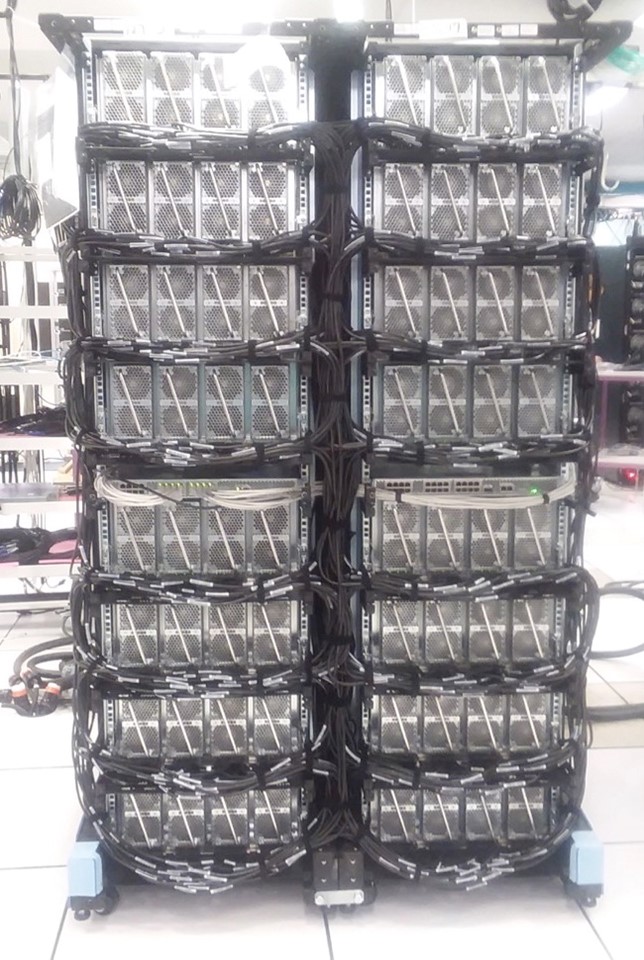Hewlett Packard Enterprise (HPE) today announced the launch of Memory-Driven Computing Sandboxwhich can support the government in its journey to advance food security and agriculture in the country. Available through HPE Digital Life Garage in Dubai, HPE’s Memory-Driven Computing Sandbox will enable developers to drive rapid proofs-of-concept that will demonstrate dramatic performance gains never before possible in the food security and agriculture industry.
Designed to dramatically improve performance and efficiency and unleash a new era of intellectual discovery and business opportunities, HPE’s Memory-Driven Computing is a new computing architecture that puts memory, not processing, at the center of the computing platform. Through HPE Digital Life Garage, organizations will be able to process vast amounts of data significantly faster and reduce the time to extract insight, from days to hours, hours to minutes, minutes to seconds, ultimately delivering real-time intelligence. The technology can support UAE government in its journey to position themselves as the world’s leading hub in innovation- driven food security.
Globally, HPE has also collaborated with global research partnership theCGIAR System Organization (CGIAR) to uncover insights about food security challenges, now intensified due to COVID-19. By applying HPE’s Memory-Driven Computing Sandbox to CGIAR’s data sets, HPE will help CGIAR acceleratesolutions to these global challenges by enabling modeling of food systems.
One of the most pressing challenges facing theworld today is ensuring a sustainable global food supply.Nearly 800 million people are chronically undernourished and 2 billion are micronutrient deficient, while the number of smaller farms, globally, is on the decline because profitability is so difficult. In short order, these problems will significantly worsen as the United Nations (UN) forecasts the world’s population will grow to 8.5 billion by 2030, and the World Economic Forum predicts a population of 9.8 billion by 2050, requiring 70 percent more food than is consumed today.
The problem has only worsened in light of the global COVID-19 pandemic. The crisis is affecting food systems and supply chains worldwide, but it is unfolding differently around the world, which means the problems cannot be solved with one universal solution.
To fully understand the situation today, CGIAR needs to generate a timely, high-frequency picture of what is happening in “food basket” locations – or areas of significant food production – around the world. A complete picture often requires data from multiple sources including crop performance, weather records, economic activity, and surveys.
Insights from this data help researchers answer questions like:
- How is economic activity and food movement happening in food baskets on a weekly basis?
- How can these analytics guide the agriculture sector and its most vulnerable participants in a period of increasing climate variability and extreme weather events?
- How can public, private, and non-profit actors meaningfully share all of this data to enable better outcomes for all?
- How can stakeholders track and measure progress toward the UN’s Sustainable Development Goals for zero hunger by 2030?
Insights from this data will enable CGIAR to see and increasingly predict how food security challenges are unfolding from the COVID-19 crisis to inform policy makers, food relief actors, and other stakeholders. Using CGIAR’s existing technology, emissions analysis on one point on the Earth could take four to five hours to run. Today, CGIAR can run multiple analyses over multiple points with sufficient frequency to inform timely action on food security.
“At HPE, our purpose is to advance the way people live and work and we are committed to applying technology to help address some of society’s toughest challenges,” said Janice Zdankus, VP, Innovation for Social Impact, HPE. “One of our focus areas is world hunger, inspired by results from Purdue University’s 1,400-acre research farm and its application of precision agriculture to increase crop yields while drastically conserving resources. With CGIAR, we saw the opportunity to apply innovative technologies, like HPE’s Memory-Driven Computing Sandbox to drive faster insights and help solve this incredibly complex challenge.”
As the year 2030 approaches, global efforts to achieve the Sustainable Development Goal zero hunger must be digitally powered.
In addition to the food security, HPE is committed to supporting research universitiessuch as NYU Abu Dhabi to address issues related to climate change by extending its world class advanced technologies and solutions for research. NYU Abu Dhabi is leveraging HPE Apollo systems with NVIDIA computational accelerators to enable deep learning and advanced AI-driven research in its state-of-the-art HPC center, advancing life-changing discoveries in fields as diverse as linguistics, cognitive neuroscience, and climate science.


